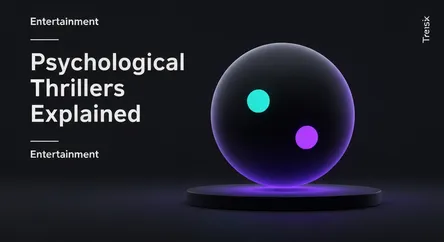Entertainment
Psychological Thrillers Explained

Uncover the secrets of the psychological thriller genre. Learn why these mind-bending movies captivate audiences with suspense and mental intrigue.
What is it?
A psychological thriller is a subgenre of thriller that prioritizes the interior and psychological states of its characters over straightforward action or slasher horror. These films delve into the fragile and often unstable minds of their protagonists and antagonists, creating suspense through ambiguity, perception, and emotional conflict. The plot often revolves around complex characters with unclear motives, unreliable narrators, and mind games that blur the lines between reality and delusion. Unlike standard thrillers that focus on external threats, psychological thrillers generate tension from within, exploring themes of identity, paranoia, and the darkness of the human psyche.
Why is it trending?
This genre is experiencing a surge in popularity because it offers more than just jump scares; it provides a deep, intellectual puzzle for the audience to solve. Viewers are drawn to the intricate plots and the challenge of piecing together clues from an often-unreliable perspective. In an era of complex narratives in television and film, psychological thrillers satisfy the craving for sophisticated storytelling. The success of modern hits like Get Out and Parasite has revitalized the genre, proving its commercial and critical appeal and encouraging studios to invest in more thought-provoking suspense films.
How does it affect people?
Psychological thrillers have a profound effect on viewers by creating a sustained sense of unease and tension. They tap into common anxieties about trust, sanity, and the loss of control. By placing the audience directly into the protagonist's confused or paranoid mindset, these films can feel intensely personal and immersive. The suspense builds slowly, leading to shocking twists that challenge perceptions and often leave a lasting impact. This mental engagement keeps audiences thinking about the film's themes and mysteries long after the credits roll, sparking conversations and a desire to re-watch and uncover hidden details.